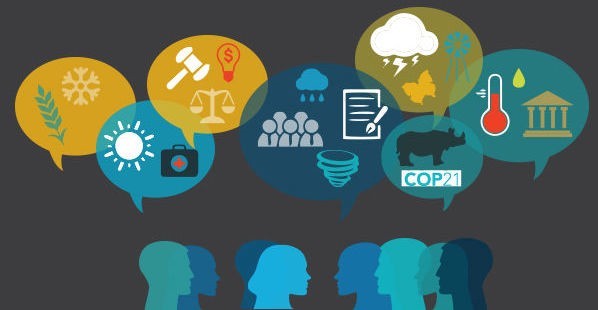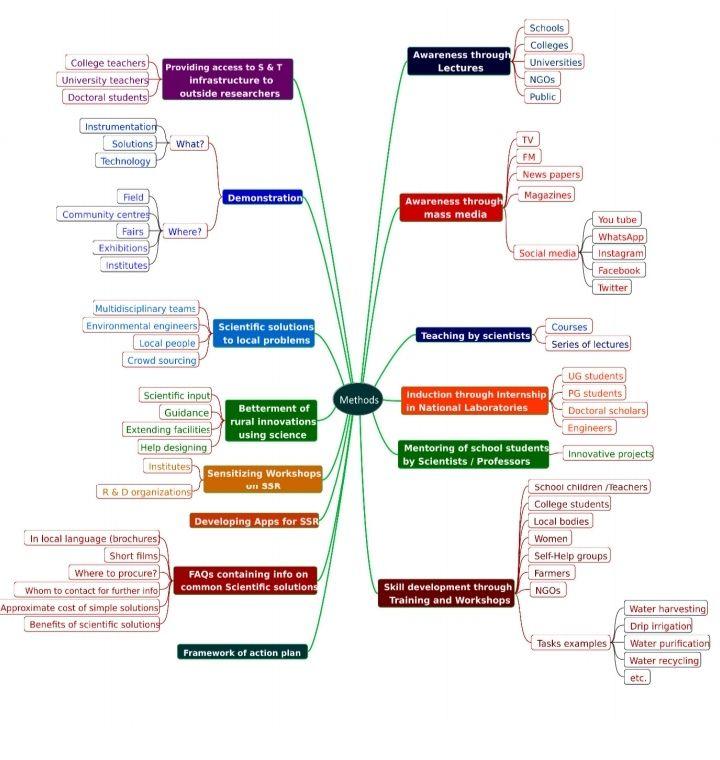Scientific Social Responsibility: Meaning, Need, Benefits, Policy initiatives

From Current Affairs Notes for UPSC » Editorials & In-depths » This topic
IAS EXPRESS Vs UPSC Prelims 2024: 85+ questions reflected
Science is an important means by which societal empowerment is achieved. The scientific development reflects national development. Nowadays, Experts believe connecting science with societal needs will create multiplier effects. In light of this line of thought, the government may soon come up with a policy on Scientific social responsibility. The draft Scientific Social Responsibility Policy is already in the public domain for discussions.
What is Scientific Social Responsibility?
- The term Scientific Social Responsibility (SSR) is analogous to Corporate Social Responsibility where Companies are expected to act responsibly while doing their business and contribute directly to the societal needs in one way or another.
- SSR is a confluence of scientific knowledge with visionary leadership and social conscience. It is about building synergies among all stakeholders in our scientific knowledge community and developing linkages between science and society.
- It is an ethical obligation of knowledge workers in all fields of science and technology to voluntarily contribute their knowledge and resources to the widest possible spectrum of the society, in the spirit of service and reciprocity.
- It works on an ethical obligation of giving back to the less endowed stakeholders of science, technology, innovation, and society at large.
- It works to develop a two-way street of impact between science and society: as science has an impact on society, society must also impact science to make it more societal needs-oriented.
Why SSR is needed?
- Science and technology have been an important part of Indian civilization and culture over millennia. The earlier science and technology policies have also emphasized on the utilization of scientific achievements for the welfare of the people.
- But new and aspirational India with vibrant and young populace is a country of ambitions that requires a renewed emphasis on integrating S&T with society at both institutional and individual levels.
- The impact of science and technology on society is often difficult to quantify, the public and its representatives are often uncertain about the investments in S&T will bring. Often, questions over huge spendings in ISRO’s projects are raised.
- The SSR is a tool by which the scientific community gives back to society as it is possible for them to engage in scientific endeavors through taxpayer’s money.
- India, while climbing economic heights, has some deep-rooted issues such as rural deprivation, the disempowerment of women, labor-intensive industries, environmental degradation, clean drinking water, adaptation to natural disasters, etc that need urgent and sustainable solutions.
- The SSR strives to use scientific knowledge to drive monumental changes in society by impacting in the above sectors of issues.
The Constitution of India and SSR
- The constitution of India in part IV-A, article 51A(h) mandates developing scientific temper, humanism, and spirit of inquiry as a part of the fundamental duties of a citizen.
- The idea has also been carried forward in previous science policies: from Scientific Policy Resolution, 1958 to Science Technology and Innovation Policy, 2013.
- The new SSR draft policy brings solely SSR as a policy initiative and gives a shape to it.
How can we develop SSR?
- The government of India has come up with the draft SSR policy to bring in policy initiatives in SSR building.
- The draft policy talks about various ways by which we can spread and inculcate scientific social responsibility and its benefits among stakeholders.
- It will harness the voluntary potential that is latent in the country’s scientific community to strengthen linkages between science and society so as to make the S&T ecosystem vibrant.
- This implies
- Science-Society Connect: Facilitating inclusive and sustainable development by transferring the benefits of scientific work to meet existing and emerging societal needs.
- Science-Science Connect: Creation of an enabling environment for the sharing of ideas and resources within the ecosystem of knowledge.
- Society-Science Connect: Collaborating with communities to identify problems and develop scientific and technological solutions.
- Cultural Change: Inculcating social responsibility among the individuals and institutions practicing science; creating awareness about SSR within society.
- Draft policy identifies four different stakeholders:
- Beneficiaries
Any community, group, entity, or individual benefitting out of the SSR activity: students, teachers, local bodies, women’s groups, SHGs, informal sector, MSMEs, etc.
- Implementors
Public and private knowledge institutions, knowledge workers, Science centers, Ministries, and their departments.
- Assessors
Internal assessment cell or external agency that will carry out monitoring and thorough assessment of SSR activities.
- Supporters
Any government agency providing grants, incentives, sponsorships to projects, corporate bodies through CSR or PPP, NRIs, OCIs, alumni associations.
What are the strategies developed by the draft SSR policy?
- All Central Government Ministries and State Governments shall plan and strategize their SSR in accordance with their respective mandates.
- All knowledge institutions shall prepare an implementation plan for achieving their own SSR goals.
- All knowledge workers would be sensitized by their institutions about their ethical responsibility to contribute towards the betterment of society and the achievement of national developmental and environmental goals.
- Every knowledge worker would give at least 10 person-days per year for SSR activities.
- There should be a monitoring system in each institution to assess SSR projects and individual activities. knowledge institutions will publish annual SSR reports.
- The Draft emphasizes on incentivizing institutional SSR activities including necessary budgetary support.
- There will not be outsourcing or subcontracting of SSR projects.
The above activity sheet gives a detailed picture of how SSR activities are to be carried out.
Who will implement the SSR policy?
- Draft policy contemplates a national digital portal wherein societal needs requiring scientific interventions are captured and available for SSR implementers, in addition to providing a platform for reporting of SSR activities.
- It also seeks to form a special purpose vehicle or body/agency to take care of SSR policy implementation under overall coordination of the Department of Science and Technology.
What are the benefits of SSR?
- SSR will expand the domain of science and its benefits to society.
- It will encourage students into science through handholding and nurturing their interests.
- It will create opportunities for cooperation and sharing of S&T resources in laboratories with other researchers in universities and colleges.
- SSR will help in skilling and skill upgradation of stakeholders such as in the informal sector.
- It will help MSMEs, Startups, and informal sectors in increasing their productivity.
- SSR has a huge potential of scientific intervention in rural innovation, women empowerment, uplifting weaker sections of the society.
- It will identify best practices and success models on SSR for replication with multiplier effects.
- SSR will facilitate climate-smart initiatives in agriculture, industries, etc.
- It will facilitate Sustainable Development Goals achievement and take India towards a more equitable and sustainable future.
What are the challenges associated with SSR implementation?
- The main challenge would be of human resources. A big lack of research community and original research doesn’t allow scope for science-society connect.
- The science activities are centralized in few urban centers and their reach is restricted both by geography and infrastructure.
- The real issues are not adequately discussed in social circles. As Amartya Sen puts it, health, education, and similar issues are not part of public policy debate and media also does not prioritize it. Science, its development and impact also come under these neglected sectors in debate.
- One of the major talked about issues is industry-university linkage for viable education. But even this limited goal has not been achieved. Implementation lacunae can potentially hinder the SSR initiative too.
- The schools, colleges lack the necessary infrastructure if scientists are to go there and conduct demo experiments.
JIGYASA and SSR
- “Jigaysa” is an initiative by CSIR to widen SSR at the national level.
- This programme works to explain the culture of curiousness and generate interest in scientific endeavors.
- Jigyasa envisages opening up the national scientific facilities to school children, enabling CSIR scientific knowledge base and facility to be utilized by schoolchildren.
- It works on student-scientist engagement in collaboration with Kendriya Vidyalaya sangathans.
Way forward
- SSR is a very effective mode to uplift the scientific quotient of the nation poised to propel itself in a self-reliant future.
- Atmanirbhar Bharat also means a self-reliant scientific development. SSR tries to open source it through largescale public engagement.
- The SSR can work together with schemes like Skill India, Startup India, Make in India for its all-around reach and contribute and benefit to these schemes.
- Capacity building of scientific institutions through funds, collaborations at the international level must be done to encourage state-of-the-art research.
- Total budget expenditure to the science and technology development must be increased which is below 1% of the GDP as of now.
- State and local self-governments must be connected with major scientific institutions so as to bring local issues to the scientific exploration tables to bring about innovative solutions. A network of local bodies and scientific fraternity can be envisaged to develop a round-the-clock problem-solving mechanism so that trust-building will be done.
Conclusion
The scientific social responsibility envisages strengthening science-society linkages in an organic manner by building synergy among all the stakeholders so as to usher in a cultural change in the conduct of science for the benefit of society at large in the country. It must be steadfastly implemented to bring about a fundamental change in national attitude towards science and technology and its societal relevance must be fully explored.
Practice Question for Mains
What is Scientific Social Responsibility (SSR)? Elucidate the importance of draft SSR in developing SSR. (250 words)
If you like this post, please share your feedback in the comments section below so that we will upload more posts like this.



